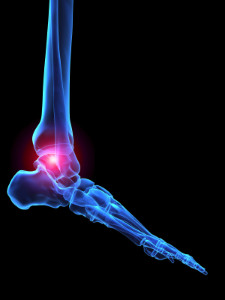
Wilmington (937) 382-2347
Fax
(513) 932-1606

Wilmington (937) 382-2347
Fax
(513) 932-1606

Systemic sclerosis (scleroderma), is an autoimmune rheumatic disease that causes contraction, hardening, and scar formation in the skin, tissues, joints, and even organs. Often the first areas of the body to be affected are the feet, hands, and face. When systemic sclerosis affects the feet, it can cause pain, limited mobility, an abnormal gait, deformity in the back of the foot, calcinosis under the skin’s surface, nail changes, as well as a degradation of skin in the foot. A podiatrist is an important part of the medical team that people with systemic sclerosis should consult with regularly to help them manage symptoms and prevent dangerous complications from developing—such as the development of foot wounds and ulcers. If you have been diagnosed with systemic sclerosis, make an appointment with a podiatrist to make sure you are receiving the regular foot assessment and podiatric care you need.
When dealing with systemic disease of the feet, it is extremely important to check the affected areas routinely so that any additional problems are caught quickly. If you have any concerns about your feet and ankles contact Dr. Gerald Perelman from Ohio. Our doctor will assist you with all of your podiatric needs.
Systemic Diseases of the Feet
Systemic diseases affect the whole body, and symptoms usually are displayed in the feet. This condition can make a patient’s ability to walk unbearable. Systemic diseases include gout, diabetes mellitus, neurological disorders, and arthritis.
Gout – is caused by an excess of uric acid in the body. Common symptoms include pain, inflammation, and redness at the metatarsal/phalangeal joint of the base big toe. Gout can be treated by NSAIDs to relieve pain and inflammation, and other drugs that lower the acid levels in the body.
Diabetes mellitus – is an increase in the level of blood sugar that the body cannot counteract with its own insulin. Failure to produce enough insulin is a factor in Diabetes.
Diabetes of the Feet
Diabetic Neuropathy – may lead to damaged nerves and affect the feet through numbness and loss of sensation.
Peripheral Vascular Disease – can restrict the blood flow to the feet, and often times lead to amputation of the feet.
If you have any questions please feel free to contact our office located in Wilmington, OH . We offer the newest diagnostic and treatment technologies for all your foot and ankle needs.